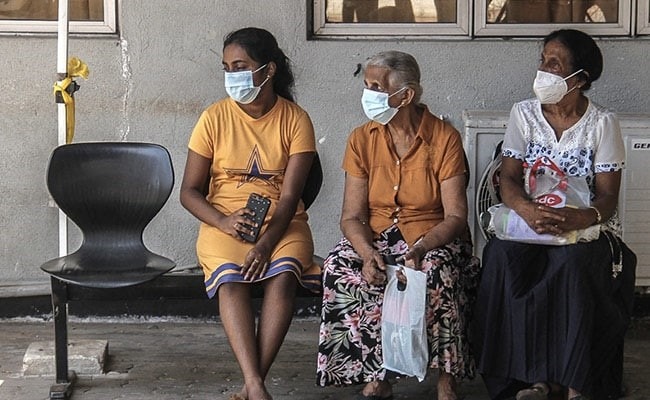| Translate This News In |
|---|
Entire wards are dark and practically empty in Sri Lanka’s largest hospital, with the few remaining patients fleeing untreated and in pain, and doctors barred from even arriving for their shifts.
An extraordinary economic crisis has inflicted a fatal blow to a free and universal healthcare system that was once the envy of the country’s South Asian neighbours.
Theresa Mary, who had diabetes and high blood pressure, which caused joint inflammation, travelled to Colombo for treatment at the National Hospital of Sri Lanka.
She had to walk the final five kilometres (three miles) of her journey because she couldn’t locate a ride for the last portion of her trek.
She was freed four days later, still unable to stand on her own, because the dispensary had ran out of subsidised medicines.
“Doctors instructed me to get drugs from a private pharmacy, but I don’t have any money,” Mary, 70, told AFP.
“My knees are still swollen. I don’t live in Colombo. I’m not sure how much longer I have to walk.”
The National Hospital generally serves people from all over the island who require specialised care, but it is currently understaffed, and many of its 3,400 beds are empty.
Supplies of surgery equipment and life-saving pharmaceuticals are nearly depleted, and chronic gasoline shortages have rendered both patients and doctors unable to travel for treatment.
“Some medical personnel perform double shifts because others are unable to report for duty. They have cars but no fuel.”
Sri Lanka imports 85 percent of its pharmaceuticals and medical equipment, as well as raw materials for the remaining portion of its requirements.
However, the government is now insolvent, and a lack of foreign currency has prevented it from obtaining enough petrol to keep the economy running – as well as enough drugs to cure its sick.
Mathiyalagan stated that his colleagues had to reject three out of every ten prescriptions because they lacked the resources to fill them.
“A number of fundamental medicines are entirely out of stock,” he continued. “Doctors prescribe without knowing what is available in pharmacies.”
‘On the verge of collapsing,’
Officials from the health ministry declined to provide specifics regarding the current situation of public health services in Sri Lanka, on which 90 percent of the population relies.
However, doctors working in government hospitals say they have been obliged to reduce routine surgery in order to prioritise life-threatening situations and employ less effective replacement medications.
“Sri Lanka’s once-strong healthcare system is now in peril,” said UN Resident Coordinator Hanaa Singer-Hamdy in a statement. “The most vulnerable are bearing the brunt of the consequences.”
The World Bank has shifted development money to assist Sri Lanka in paying for critically needed pharmaceuticals, including anti-rabies vaccines.
Donations for the healthcare industry have come from India, Bangladesh, Japan, and other countries, while Sri Lankans living abroad have contributed by bringing back drugs and medical equipment.
However, incoming President Ranil Wickremesinghe has warned that the country’s economic crisis is likely to last until the end of next year, and Sri Lanka is facing an even greater public health crisis.
Food prices are so high due to hyperinflation that many households are struggling to feed themselves.
According to the World Food Programme, approximately five million individuals (22 percent of the population) require food assistance, with more than five out of every six households skipping meals, eating less, or purchasing lower-quality food.
If the crisis continues, “more infants will die, and malnutrition will be endemic in Sri Lanka,” Dr Vasan of the medical officers’ organisation told AFP.
“It will drag our healthcare system to the brink of collapse.”


















